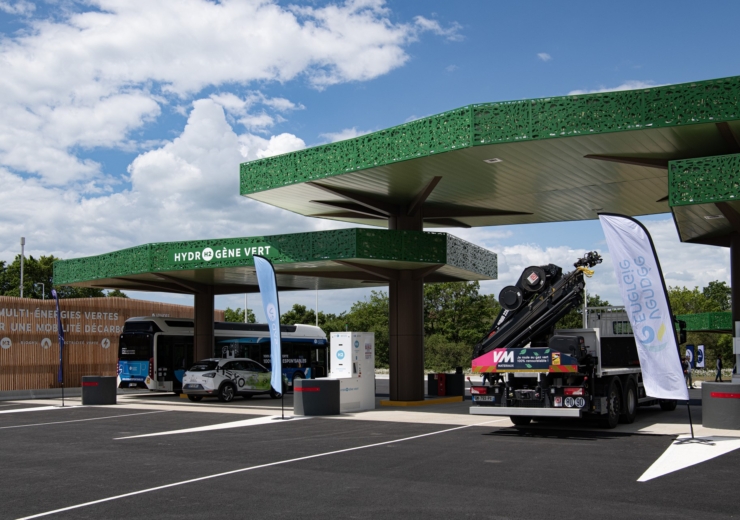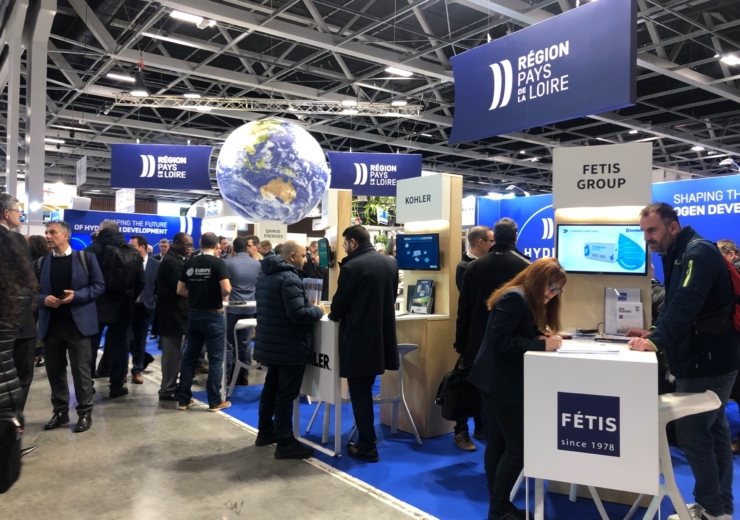Atlantic France is fast becoming a centre of excellence in the production and use of hydrogen. Technological advances are numerous and varied and involve local companies, research bodies, universities, and local authorities. In this article, we’re going to focus on four major developments that bear witness to this dynamic in the Atlantic France region. We’ll be discussing the new optimised machine for manufacturing thermoplastic hydrogen tanks (which was developed by Cetim), the Fétis “evol-E” demonstrator, and Nantes Saint-Nazaire Port’s desire to invest in hydrogen.
Cetim’s new composite hydrogen tank
Cetim is about to invest in a new machine optimised for the manufacturing of thermoplastic hydrogen tanks in Nantes. This machine is part of the “Thor” European R&D project, which is being conducted with Faurecia, Air Liquide, Rina-CSM, Sirris, NTNU, and CNRS Prime. Thor aims to produce optimised, recyclable thermoplastic composite tanks for hydrogen-powered vehicles. 15 tanks have already been produced in collaboration with the German company AFPT at the Composites Technocampus near Nantes, two of which have withstood burst pressures of around 1,500 bar. The new machine will be operational at the Hymeet test centre, which is currently positioned inside Cetim’s new materials engineering and testing centre but will have a dedicated new site in Nantes by the end of 2024. By investing in this, Cetim hopes to develop its expertise in the field of hydrogen for the French mechanical engineering industry.
Fétis presents its evol-E hydrogen demonstrator
Nantes-based business Fétis is revolutionising the agricultural and public works handling equipment industry. Specialising in mechanical welding, the company saw a growth of 20% at the start of 2023, which was driven in particular by its mechanical welding business. The group recently unveiled its “evol-E” technology demonstrator, which is equipped with a hydrogen fuel cell system for off-road use and a composite tank produced by Cetim, enabling new technological advances to be tested under severe conditions. In addition to hydrogen propulsion, the vehicle can experiment with sensors, cameras, and computers for self-guidance and vehicle autonomy. Fétis is working on a variety of energy solutions to meet the diverse uses, performance, weight, longevity, and maintenance costs of the vehicles, including “full electric” solutions, hybrids, or internal combustion engines (H2, e-fuel, etc.). Fétis’s flagship projects include the hydrogen engine for Manitou’s H2 forklift truck and the Traxx Concept H2 autonomous vineyard tractor, which is developed with Exel Industries.
Nantes Saint-Nazaire Port invests in hydrogen
The port of Nantes-Saint-Nazaire has set aside twelve hectares in Montoir to accommodate a future hydrogen production centre planned for the Saint-Nazaire basin, which is in line with the airport runway. Nantes Saint-Nazaire Port launched a call for expressions of interest in November 2022 for this production site, which could produce synthetic marine fuels to replace the heavy fuel oil used in shipping. Carriers are looking for alternatives, as greenhouse gas emissions from shipping account for 3% of global emissions. The project could get underway as early as 2030 if all the obstacles are removed, and enough players are said to be interested. The new production site in Loire-Atlantique could help the port reposition its business model, as 70% of its revenue comes from fossil fuels linked to traffic at the Donges refinery, the Cordemais power plant, and the Elengy terminal in Montoir. France imports a million tonnes of hydrogen every year for a variety of applications, so the need is definitely there.
Would you like to find out more about the hydrogen industry? Visit our dedicated pages now.


 Français
Français 


